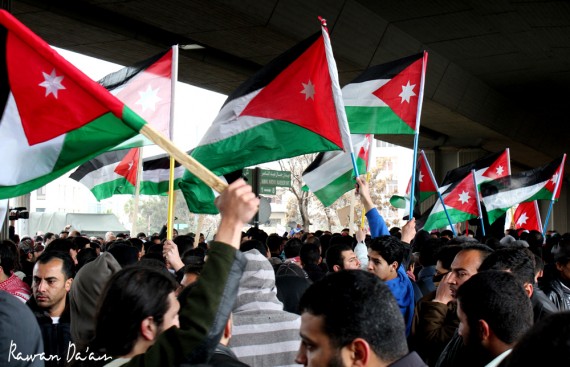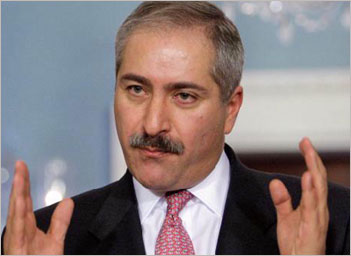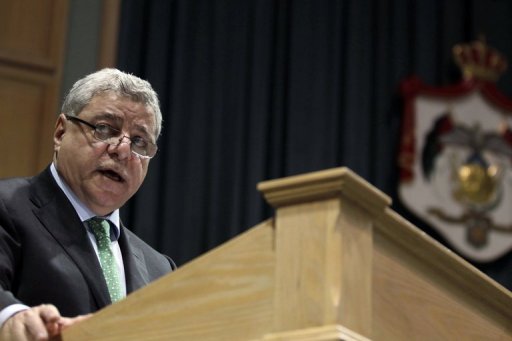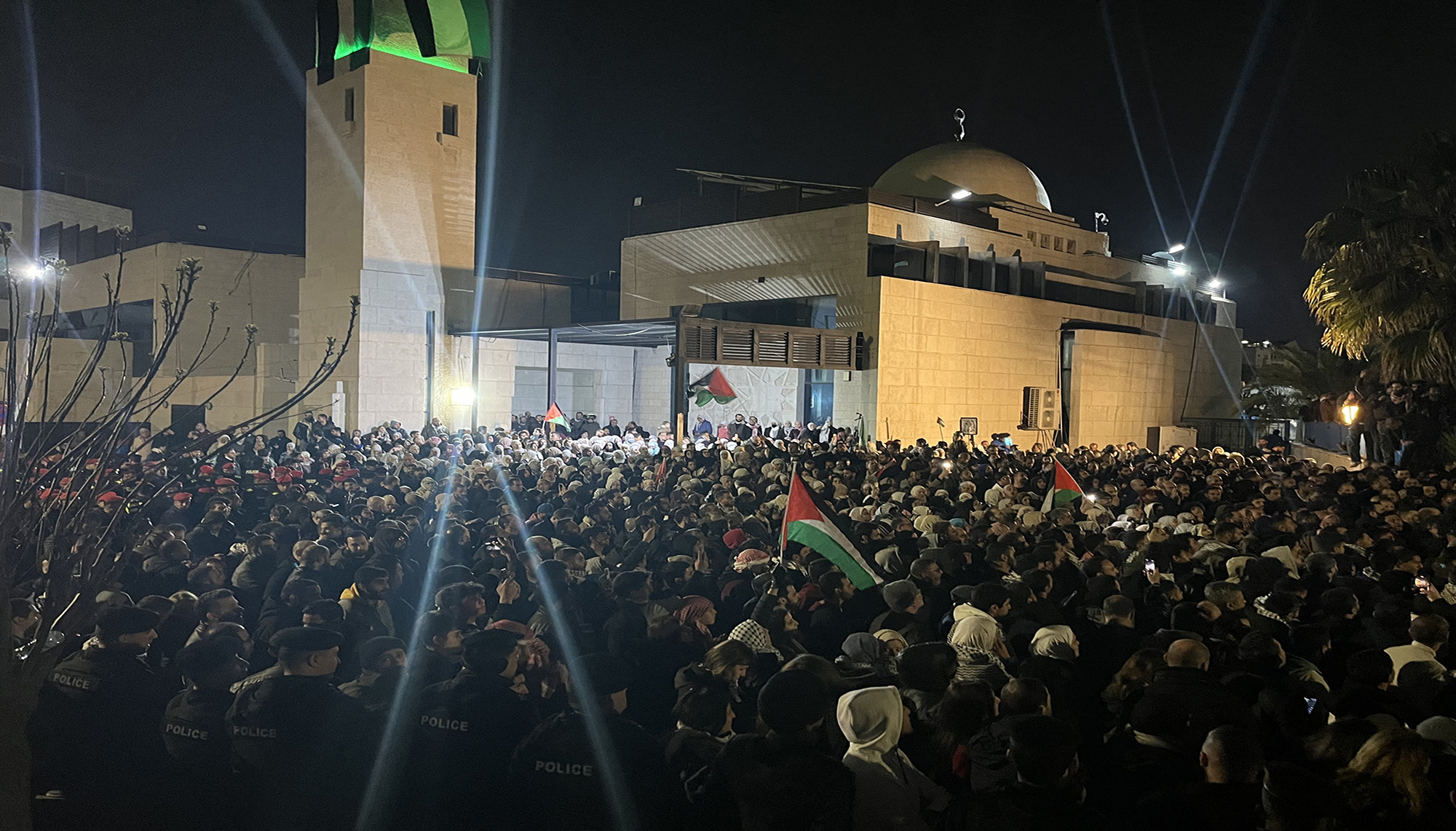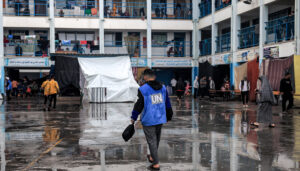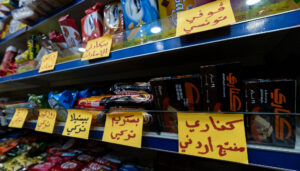By Sandra Hiari
A full calender year has lapsed since March 24th, a day that is embedded in our minds as Jordanians. It certainly has proved to be a marker in the modern history of our humble country since it comes as a local repercussion of January 25th – a date that is associated with the toppling of the Mubarak regime in Egypt.
Aside from political narratives, I believe we as individuals have our own narratives on what happened post March 24th. They are social of nature and reflective of how far the country has/hasn’t come to effectuate change on a citizen level. I am sharing here what my personal narrative has been and continues to blossom into.
The story starts on a Thursday night – the night of March 24th. After hearing the calls to demonstrate on Friday, my sister and I took a drive towards the site of the next days demonstrations; the Interior Ministry circle (Dowar Al Dakhiliya). We coincidentally drove besides the car of Hussein Al Majali, the Lietunant General of the Public Security Forces. He passed by like any passerby: side-by-side to other cars with the absence of any motorcade to sweep the street open for him. Things seemed quiet.
Friday morning was a different story. I was glued to my Twitter feed since many of my followers were at the circle. Relying on first-hand accounts of credible friends, the tweets coming in while being succinct in nature (two-liner – 140 characters long sentences), where more telling than volumes of news articles I had read on the event. Al Arabiyya aired a video of reporter Saed Silawai showing that young men a top of the bridge above the roundabout carrying flags and throwing stones at the protesters below. It was not only surprising to see that defenseless citizens were attacked by homegrown thugs, it was quite embarrassing to see them carrying out so in the name of the flag and Jordanian leadership.
My Facebook status read:
For friends away from Amman: waves of change are striking Jordan. We have reform requests on the constitutional level. The city is sizzling as each Friday passes. We have two protests today. Save a few stones and thugs, they are peaceful. Let’s keep on dreaming for a peaceful Middle East.
By Friday night, I was fuming. What have we sown in Jordan since our independence that reaped such rising hatred? I started tweeting with Nasser Judeh, the foreign Minister, among other tweeps as we anticipated the appearance of the then Prime Minister, Marouf Al Bakhit, on JTV.
I pulled some tweets from my twitter feed with a time stamp of Friday, March 25. Some of them were:
جمعة حزينه يا بلدي #Mar24
@Sandmonkey I hope it doesn’t snowball into such a divide, so narrow-minded will it be. We won’t go far with reform if we do…
@ramseygeorge Feels like a bad nightmare, if only it was a nightmare #Jordan #ReformJO
Retweeted from Salaheddin al-Bashir, former minister RT @sdbashir: If I want to choose between preserving the right to peaceful protest or a traffic jam I will always opt for the former #re …
My general mood post March 24 (as the tweets suggest) was solemn, reminding me of the morning after the Amman bombings in 2005. What made things worse was Naseem’s accountof what he witnessed at the circle – a wedge of public space tucked underneath a bridge and one with a limited capacity for demonstrators.
But then browsing through pictures of the demonstrations on 7iber’s website, I realized that an urban design aspect into it was not to be missed.
———
The protesters of March 24 instilled what age-old politicians in this country couldn’t; the word of “reform” in official discourse. Like a child running to catch the school bus she missed by minutes, our country was trying to prove it was heading in the right direction by bombarding the citizenship with slogans that paint the picture of an aspiring democracy. Only the country had a militant prime minister that played along the lines denouncing freedom of speech. Shortly after, he was replaced with Awn Khasawneh. The choice of Khasawneh – a judge – was interesting. It was successful on some levels and coming late at a few others. The message seemed to be “Let’s remind the world that we are all about legislation and run our country based on rule of law even though we are tribal.”
Yet one year already passed and we still haven’t figured how to advance our political representation systems or hit a degree of participatory maturity. As I watch “The West Wing”, I cringe.
In the wake of the identity mess in Jordan, I figured that not only was the country warming up for reform after a decade-long hibernation (perhaps longer), but it was time to reform oneself whilst demanding it. A few months after March 24th, and instead of merely criticizing the country, I handed my career over to the government. Can I tell you how many times the word “Arab Spring” has surfaced in the office? It has been influencing some day-to-day desk work, perhaps more.
The stifled voices within us have begun to leave their cages and soar. Yet how far have we made ourselves heard? Pretty far. How much change did the voice instigate? Incremental and at times superficial. Socially we have succeeded in creating the rift between pop loyalists and heated reformists. The in-between spectrum remains to be the one that matters, yet still hasn’t enough channels to permeate its own change. I say this amid the multitude of web news channels and the unprecedented leash of freedom of expression. What we are following is a spark, what we need is much more than that. I need to know what my Jordanianism means, I want to feel part of something beyond tribal undertones and navigate through my countries bureaucracy while dancing to meritocracy beats.
And as tonight marks the closure of the one year anniversary of March 24, I am writing this article while watching Arab Idol. Why bring up such a trivia amid a serious article? Because in a way, I want to highlight how mainstream media has helped shaped reform movements in the Arab World and at the same time has been able to normalize them.
